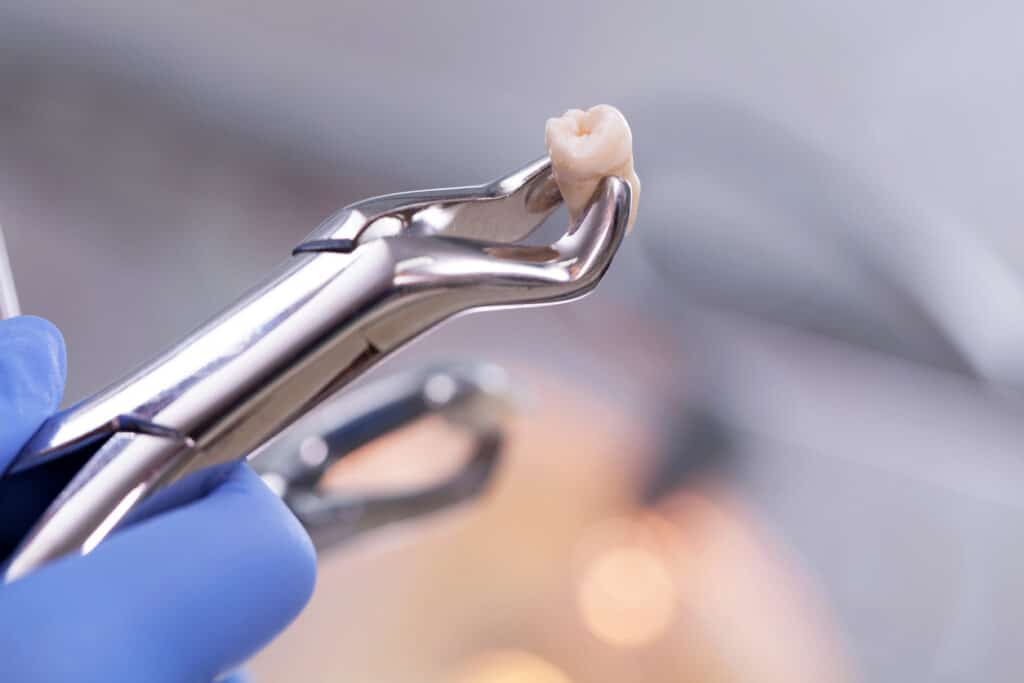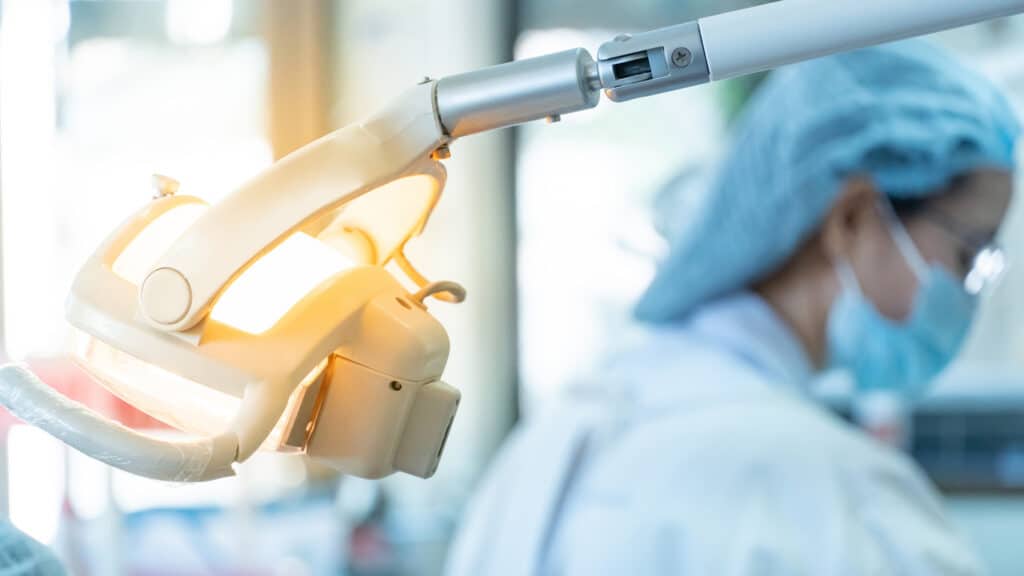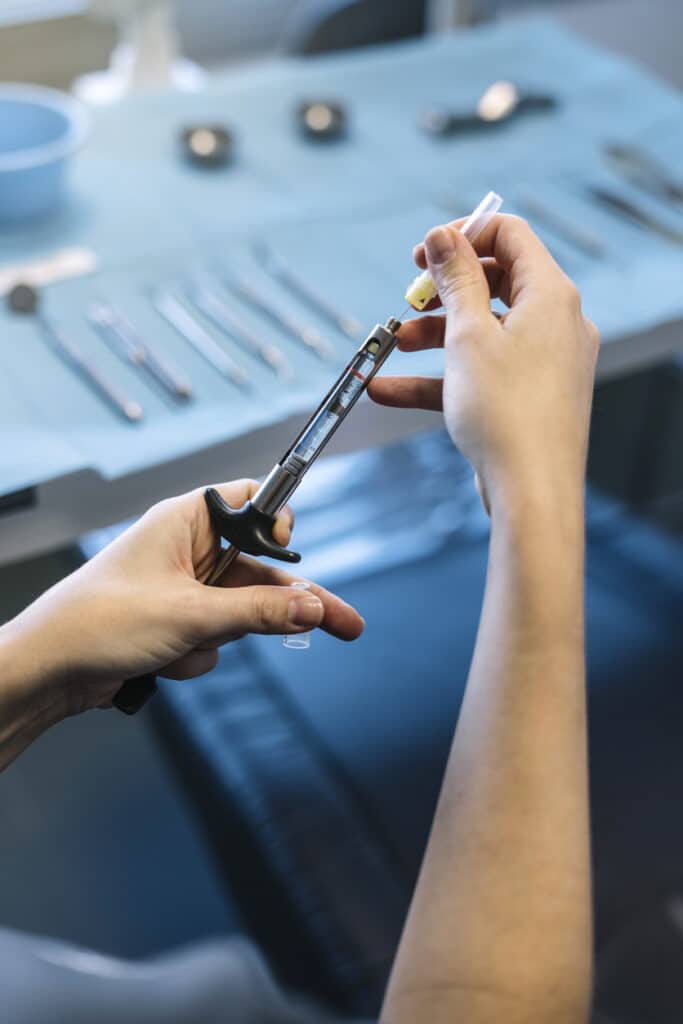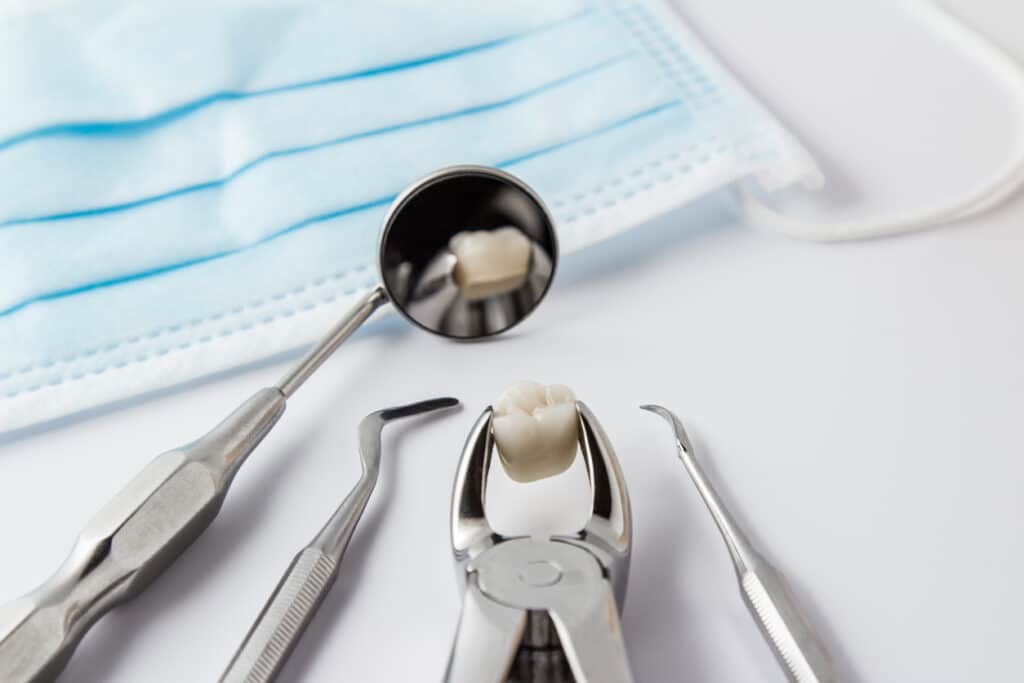

Although there are a range of treatments available to restore diseased or damaged teeth, occasionally an extraction is necessary. This is the case when a tooth has been damaged beyond repair – for example by gum disease – and extraction becomes the safest and healthiest option.
At Blue Finch Dental Fulham we offer tooth extractions as part of a comprehensive range of dental treatments. We are a welcoming, family-run clinic in a peaceful first-floor location. We pride ourselves in clinical excellence and in explaining our treatments in simple, everyday language, enabling you to be fully involved in your treatment choices and to be confident in choosing the right treatments for you. Nervous patients are welcome.


Although your dentist will generally try to save existing teeth wherever possible, there are several cases where extracting a tooth may be the safest option. Your dentist will advise you on the best course of action in your particular case.
If your tooth is severely decayed and cannot safely or reliably be treated with restorations such as fillings or crowns, extraction might be recommended to prevent problems spreading to surrounding teeth or gums.
Gum disease can cause damage within the gums that support the teeth. If the gums are severely damaged beyond what can be addressed with periodontal treatment, it may be safest to extract the tooth. This will also allow your dentist to better treat the gums and remove any harmful tartar and plaque, and allow the gums to recover before considering replacement tooth options.
If wisdom teeth do not have enough room to grow without pushing on other teeth, or get stuck below the gum line, extraction may be necessary to prevent pain or problems with other teeth. See more on wisdom tooth extraction below.
Dental trauma – where a tooth is broken or knocked out due to a direct impact – may also necessitate extraction if the tooth is severely damaged.
To correct misplaced or irregular teeth.
Your orthodontist may refer to us to extract a tooth or teeth as part of an orthodontic treatment plan.

Although the thought of having a tooth removed can be daunting, modern dentistry techniques and advancements in anaesthesia ensure that the process is comfortable and minimally invasive. We aim for you to feel at ease throughout the procedure.
As with all dental treatments, the process begins with an initial appointment and examination. Your dentist will examine your teeth, take scans and/or x-rays, screen for any other dental or oral health issues, and discuss your options with you regarding the problem tooth or teeth.
The extraction process itself begins with the administration of anaesthesia. This will numb the area around the tooth to be extracted so you feel nothing during the procedure. Sedation options are available for complex extractions, or for particularly anxious patients.
Your dentist will then use specialised dental instruments to loosen and extract the tooth safely. In most cases, your dentist will be able to use forceps to simply lift the tooth out of the mouth. Less often, it may be necessary to perform a surgical extraction, cutting the tooth out. Your dentist will communicate with you to understand how you’re feeling, adjusting anaesthesia or taking breaks if necessary.
Once the tooth is removed, your dentist will thoroughly clean the area. If necessary, your dentist will apply dental stitches to close the extraction site and promote proper healing of the surrounding tissues. We will also provide you with the instructions below on taking care of the gum following extraction, to ensure your gum heals quickly and safely.
Our helpful dentists are standing by to book your appointment and answer any questions you may have.
Once healing is complete, there are several options following a tooth extraction depending on whether or how you want to replace the extracted tooth.
Your dentist will discuss with you the options available in your particular case and help you find the right solution.

Wisdom teeth, also known as third molars, typically appear in a person’s late teens or early twenties. Due to the presence of existing teeth in the jaw, it may be difficult for the wisdom tooth to come through the gum (erupt). This can lead to various problems such pain or infection, all of which may necessitate removal.
Due to its position at the back of the mouth and the fact it may not be fully erupted, a wisdom tooth extraction may be more complex than a tooth towards the front of the mouth. Whilst in many cases the procedure may resemble a typical tooth extraction, it is possible that your dentist will have to cut into the gum to surgically remove the tooth in several pieces, or remove some bone in order to be able to extract the tooth.
As always, your comfort and wellbeing remains our number one priority at all times. Your dentist will discuss the procedure with you, ensure you are correctly anaesthetised, and provide you with all necessary aftercare and advice following the extraction.
Following a tooth extraction, it’s crucial to adhere to post-operative care instructions to ensure a smooth and speedy recovery. Immediately after the procedure, it’s recommended to apply gentle pressure with a clean gauze pad to control any bleeding. Avoid vigorous rinsing or touching the extraction site with your tongue or fingers to prevent irritation or dislodging of the blood clot, which aids in the healing process. Maintain a soft diet for the first few days and avoid hot liquids, alcohol, and smoking, as these can impede healing and increase the risk of complications. Additionally, take any prescribed pain medication as directed by your dentist to manage discomfort. Be sure to follow up with your dentist for any concerns or complications to ensure optimal healing and oral health.
For more information, download and read our After Extraction/Minor Surgery Advice guide below.
My valued colleagues are hand-picked and have to demonstrate the highest level of clinical ability, and to be warm and friendly people who love looking after others.
Sometimes, we keep it in the family. My wife also plays a key role in Blue Finch Dental, ensuring our values of treatment excellence and family care are transmitted through the company.
Our helpful dentists are standing by to book your appointment and answer any questions you may have.

Clear retainers that invisibly realign your teeth, Invisalign® has become the biggest name in retainer technology for adults.
We are a registered Invisalign® practitioner and can help you from answering your Invisalign questions through to the procedure and retainer fitting itself.
Contact us and one of our dentists will be in touch to answer all your questions about whether Invisalign might be the right treatment for you. Alternatively, have a look at our Invisalign page.


A good dentist is crucial for children. Our dentists are experienced in paediatric work and enjoy the fun that children bring to the clinic. From toys and games in the waiting area to modern, pain-free treatments and fun, relaxed staff, we are all set up to leave your children with beaming smiles!

We provide private emergency dental care in Fulham for both our registered and non-registered patients. Wherever possible we will make you a same-day appointment to get you treated and out of pain as quickly as possible. Contact us immediately and we will arrange your appointment.
Medical Review: The information on this page has been reviewed for accuracy by Tim Neill, lead dentist, Blue Finch Dental.
Our Fulham dentist is conveniently situated a stone’s throw from Fulham Broadway tube. We are located on a peaceful first floor away from the noise and bustle of the street, and have a lift for the less mobile.
We guarantee you and your family a warm welcome and a smooth, stress free dental experience. For full details of the clinic and a look around inside, just hit the button below.
Our helpful dentists are standing by to book your appointment and answer any questions you may have.